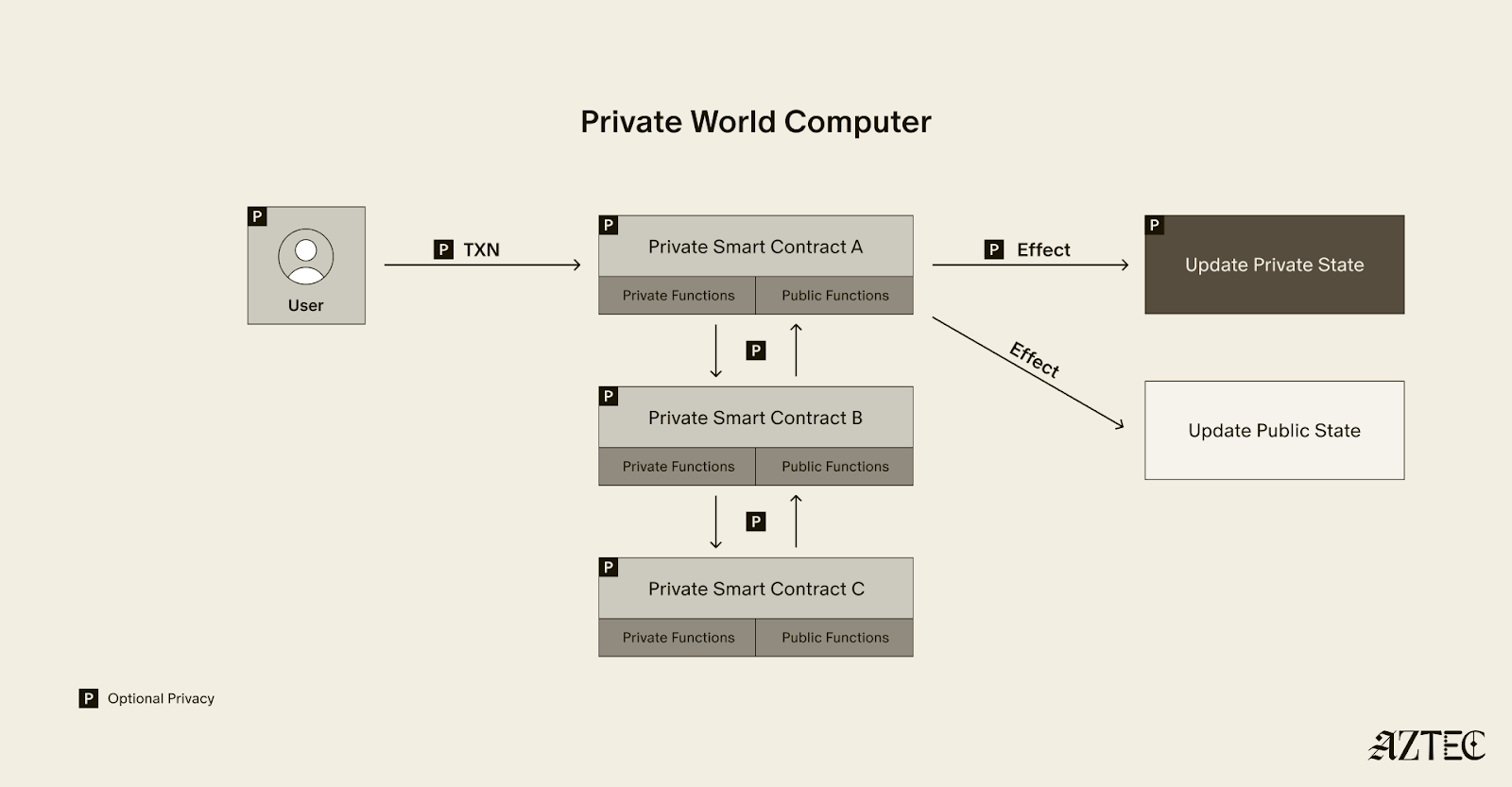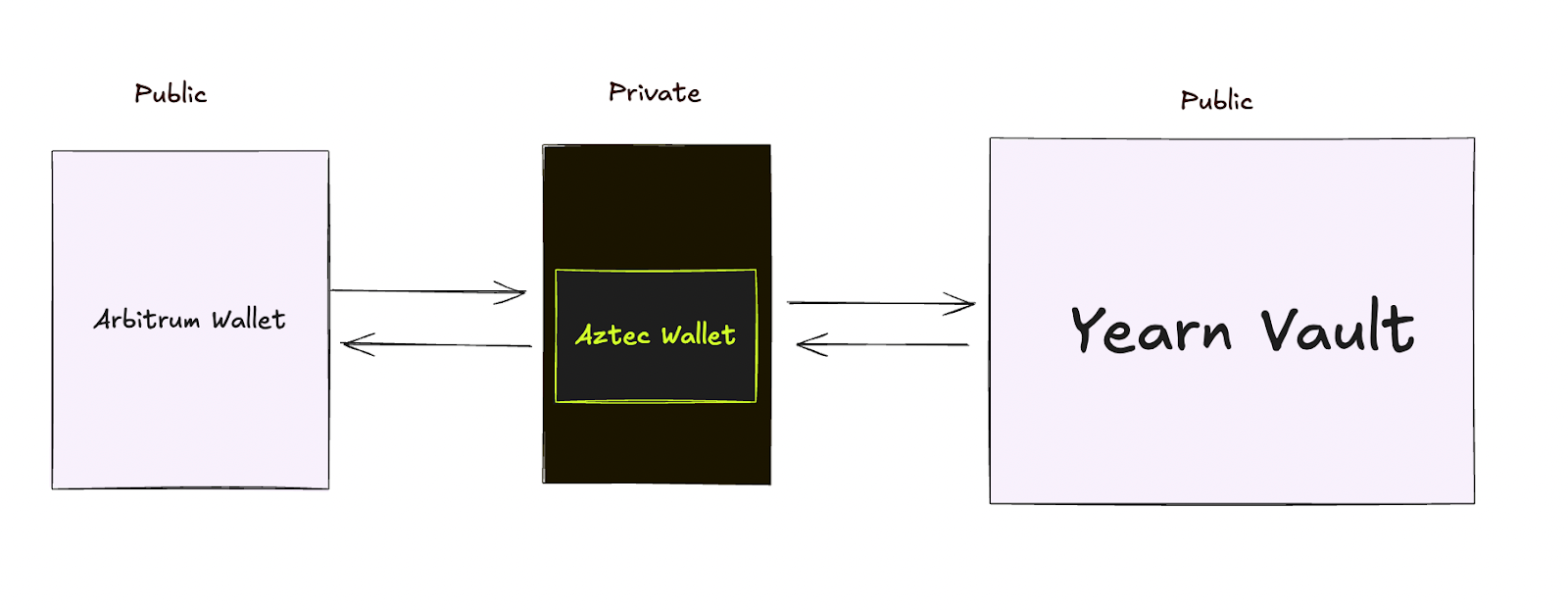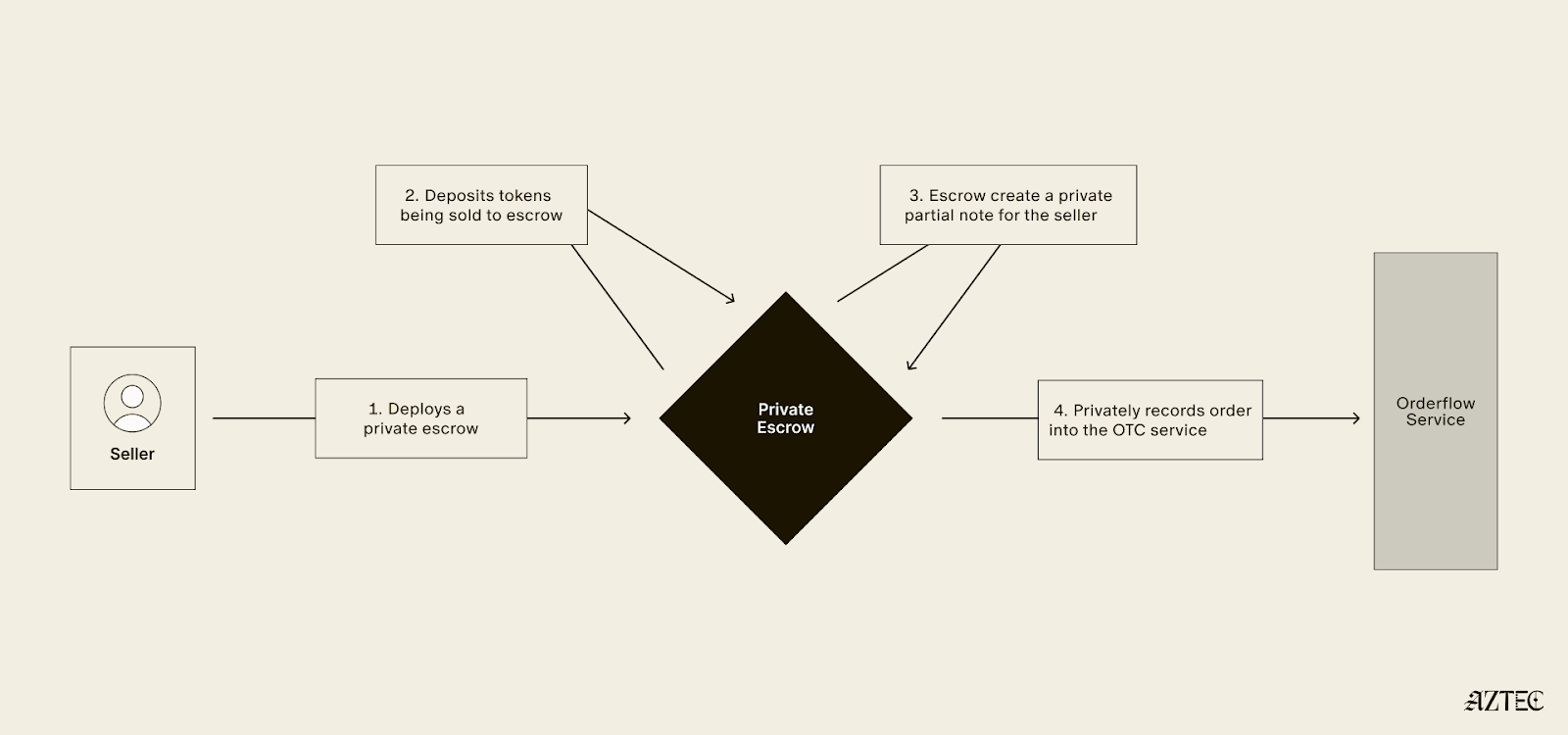Preventing sybil attacks and malicious actors is one of the fundamental challenges of Web3 – it’s why we have proof-of-work and proof-of-stake networks. But Sybil attacks go a step further for many projects, with bots and advanced AI agents flooding Discord servers, sending thousands of transactions that clog networks, and botting your Typeforms. Determining who is a real human online and on-chain is becoming increasingly difficult, and the consequences of this are making it difficult for projects to interact with real users.
When the Aztec Testnet launched last month, we wrote about the challenges of running a proof-of-stake testnet in an environment where bots are everywhere. The Aztec Testnet is a decentralized network, and in order to give good actors a chance, a daily quota was implemented to limit the number of new sequencers that could join the validator set per day to start proposing blocks. Using this system, good actors who were already in the set could vote to kick out bad actors, with a daily limit of 5 new sequencers able to join the set each day. However, the daily quota quickly got bottlenecked, and it became nearly impossible for real humans who are operating nodes in good faith to join the Aztec Testnet.
In this case study, we break down Sybil attacks, explore different ways the ecosystem currently uses to prevent them, and dive into how we’re leveraging ZKPassport to prevent Sybil attacks on the Aztec Testnet.
Preventing Sybil Attacks
With the massive repercussions that stem from privacy leaks (see the recent Coinbase incident), any solution to prevent Sybil attacks and prove humanity must not compromise on user privacy and should be grounded in the principles of privacy by design and data minimization. Additionally, given that decentralization underpins the entire purpose of Web3 (and the Aztec Network), joining the network should remain permissionless.
Our goal was to find a solution that allows users to permissionlessly prove their humanity without compromising their privacy. If such a technology exists (spoiler alert: it does), we believe that this has the potential to solve one of the biggest problems faced by our industry: Sybil attacks. Some of the ways that projects currently try to prevent Sybil attacks or prove [humanity] include:
- “Know Your Customer” (KYC): A process in which users upload a picture or scan of their government ID, which is checked and then retained (indefinitely) by the project, and any “bad actors” are rejected.
- Pros: High likelihood they are human, although AI has begun to introduce a new set of challenges.
- Cons: User data is retained and viewable by a centralized entity, which could lead to compromised data and privacy leaks, ultimately impacting the security of the individuals. Also, KYC processes in the age of AI means it is easy to fake a passport as only an image is used to verify and not any biometric data held on the passport itself. Existing KYC practices are outdated, not secure and prone to data leaks increasing personal security risk for the users.
- On-chain activity and account linking (i.e, Gitcoin passport)
- Pros: No personal identity data shared (name, location, etc.)
- Cons: Onchain activity and social accounts are not Sybil-resistant.
- Small payment to participate
- Pros: Impractical/financially consequential for bots to join. Effective for centralized infra providers as it can cover the cost they incur from Sybil attacks.
- Cons: Requires users to pay out of pocket to test the network, and doesn’t prevent bots from participating, and is ineffective for decentralized infra as it is difficult to spread incurred costs to all affected operators.
- zkEmail
- Pros: The user shares no private information.
- Cons: Users cannot be blocked by jurisdiction, for example, it would be impossible to carry out sanctions checks, if required.
- ZKPassport, a private identity verification app.
- Pros: User verifies they possess a valid ID without sharing private information. No information is retained therefore no leaks of data can occur impacting the personal security of the user.
- Cons: Users must have a valid passport or a compatible government ID, in each case, that is not expired.
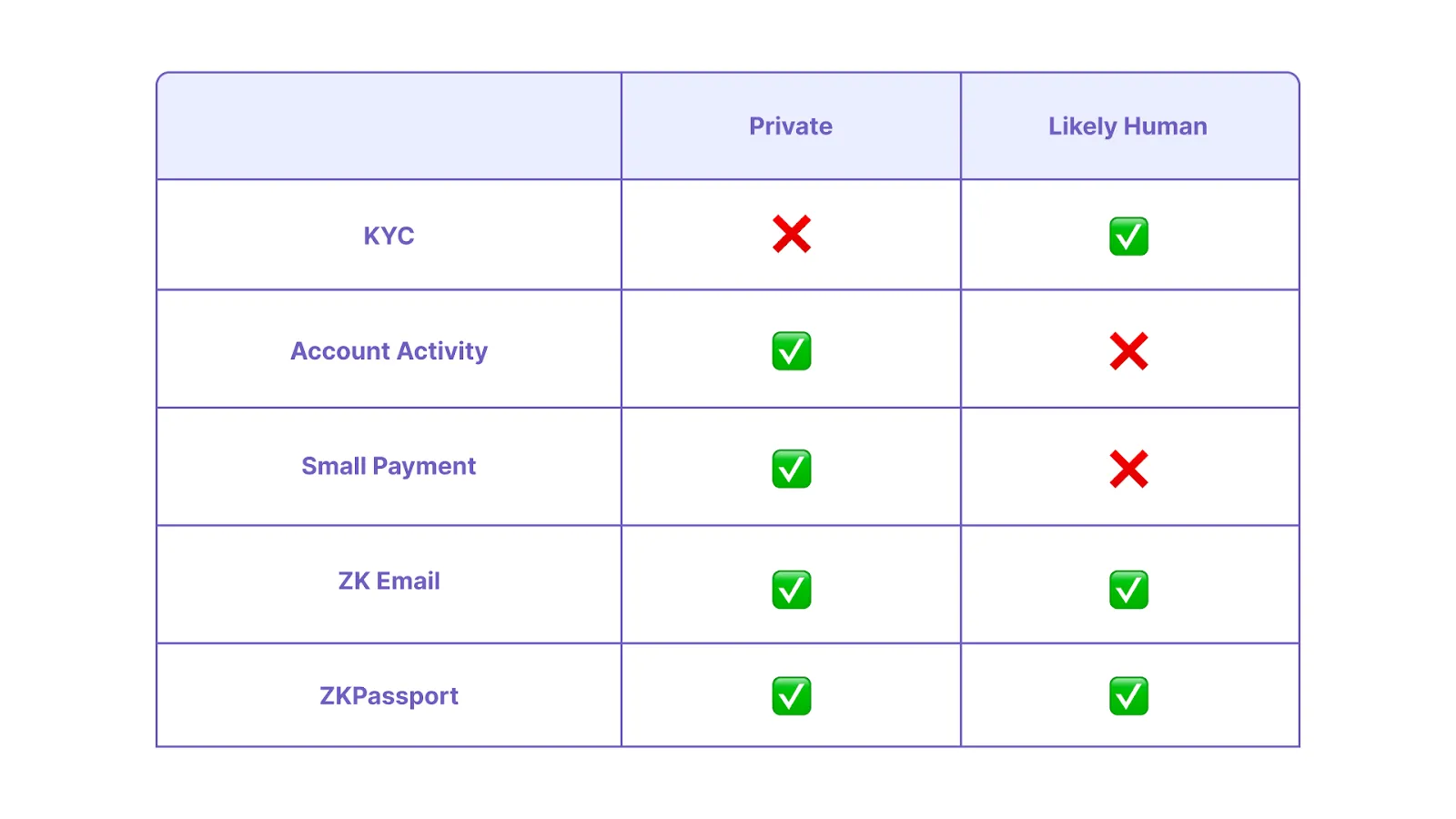
Both zkEmail and ZKPassport are powered by Noir, the universal language of zk, and are great solutions for preventing Sybil attacks.
With zkEmail, users can do things like prove that they received a confirmation email from a centralized exchange showing that they successfully passed KYC, all without showing any of the email contents or personal information. While this offers a good solution for this use case, we also wanted the functionality of enabling the network to block certain jurisdictions (if needed), without the network knowing where the user is from. This also enables users to directly interface with the network rather than through a third-party email confirmation.
Given this context, ZKPassport was, and is, the perfect fit.
About ZKPassport
For the Aztec Testnet, we’ve integrated ZKPassport to enable node operators to prove they are human and participate in the network. This integration allows the network to dramatically increase the number of sequencers that can be added each day, which is a huge step forward in decentralizing the network with real operators.
ZKPassport allows users to share only the details about themselves that they choose by scanning a passport or government ID. This is achieved using zero-knowledge proofs (ZKPs) that are generated locally on the user’s phone. Implementing client-side zk-proofs in this way enables novel use-cases like age verification, where someone can prove their age without actually sharing how old they are (see the recent report on How to Enable Age Verification on the Internet Today Using Zero-Knowledge Proofs).
As of this week, the ZKPassport app is live and available to download on Google Play and the Apple App Store.
How ZKPassport works
Most countries today issue biometric passports or national IDs containing NFC chips (over 120 countries are currently supported by ZKPassport). These chips contain information on the full name, date of birth, nationality, and even digital photographs of the passport or ID holder. They can also contain biometric data such as fingerprints and iris scans.
By scanning the NFC chip located in their ID document with a smartphone, users generate proof based on a specific request from an app. For example, some apps might require only the user’s age or nationality. In the case of Aztec, no information is needed about the user other than that they do indeed hold a valid passport or ID.
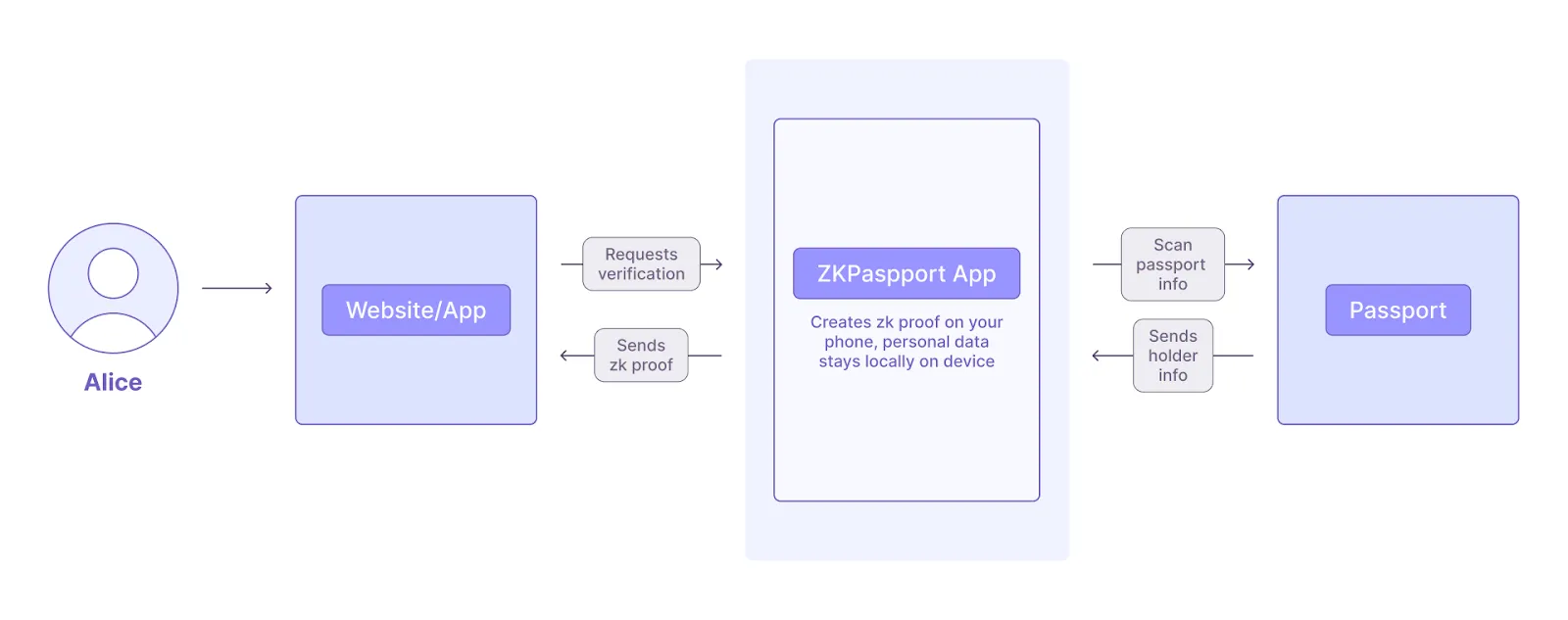
Client-side proving
Once the user installs the ZKPassport app and scans their passport, the proof of identity is generated on the user's smartphone (client-side).
All the private data read from the NFC chip in the passport or ID is processed client-side and never leaves the smartphone (aka: only the user is aware of their data). Only this proof is sent to an app that has requested some information. The app can then verify the validity of the user’s age or nationality, all without actually seeing anything about the user other than what the user has authorized the app to see. In the case of age verification, the user may want to prove that they are over 18, so they’ll create a proof of this on their phone, and the requesting app is able to verify this information without knowing anything else about them.
For the Aztec Testnet, the network only needs to know that the user holds a valid passport, so no information is shared by the user other than “yes, I hold a valid passport or ID.”
Getting started with ZKPassport on Aztec Testnet
This is a nascent and evolving technology, and various phone models, operating systems, and countries are still being optimized for. To ensure this works seamlessly, we’ll be selecting the first cohort of people who have already been running active validators on a rolling basis to help test ZKPassport and provide early feedback.
If someone successfully verifies that they are a valid passport holder, they will be added to a queue to enter the validator set. Once they are in line, they are guaranteed entry. The queue will enable an estimated additional 10% of the current set to be allowed in each day. For example, if 800 sequencers are currently in the set, 80 new sequencers will be allowed to join that day.
This allows existing operators to maintain control of the network in the event that bad actors enter, while dramatically increasing the number of new validators added compared to the current number.
Humanizing Web3
With ZKPassport now live, the Aztec Testnet is better equipped to distinguish real users from bots, without compromising on privacy or decentralization.
This integration is already enabling more verified human node operators to join the validator set, and the network is ready to welcome more. By leveraging ZKPs and client-side proving, ZKPassport ensures that humanity checks are both secure and permissionless, bringing us closer to a decentralized future that doesn’t rely on trust in centralized authorities.
This is exciting not just for Aztec but for the broader ecosystem. As the network continues to grow and develop, participation must remain open to anyone acting in good faith, regardless of geography or background, while keeping out bots and other malicious actors. ZKPassport makes this possible.
We’re excited to see the community expand, powered by real people helping to build a more private, inclusive, and human Web3.
Stay up-to-date on Noir and Aztec by following Noir and Aztec on X.

